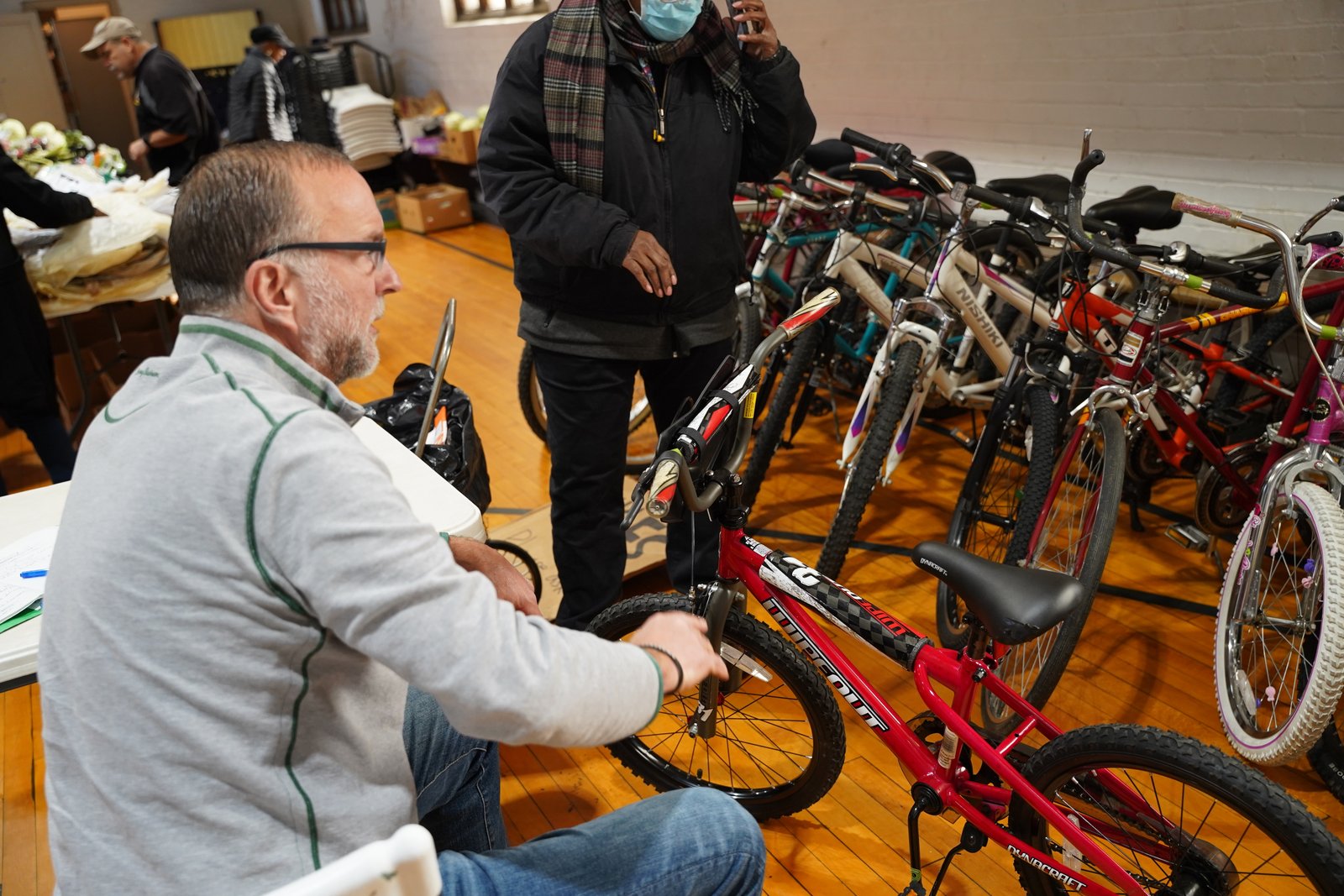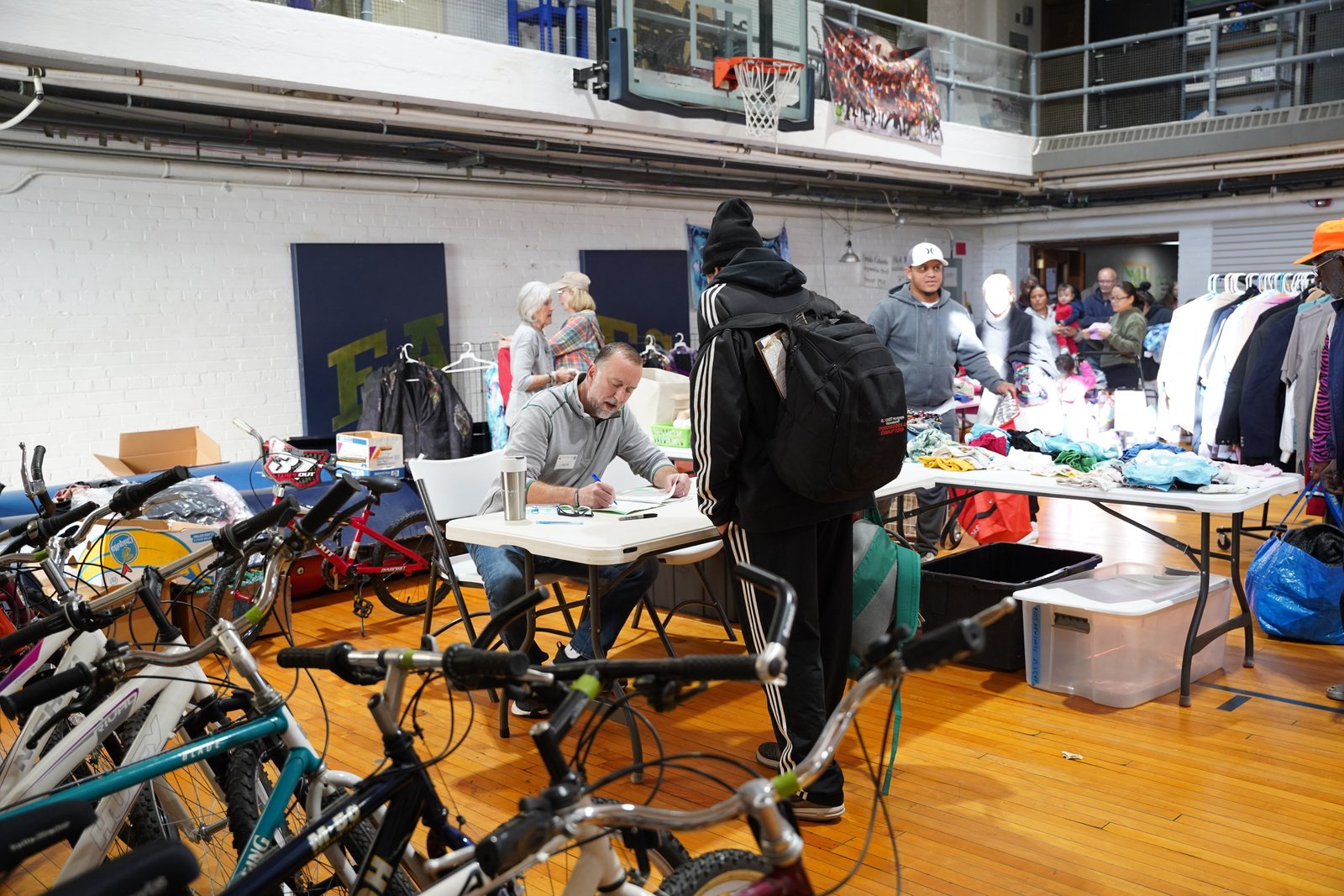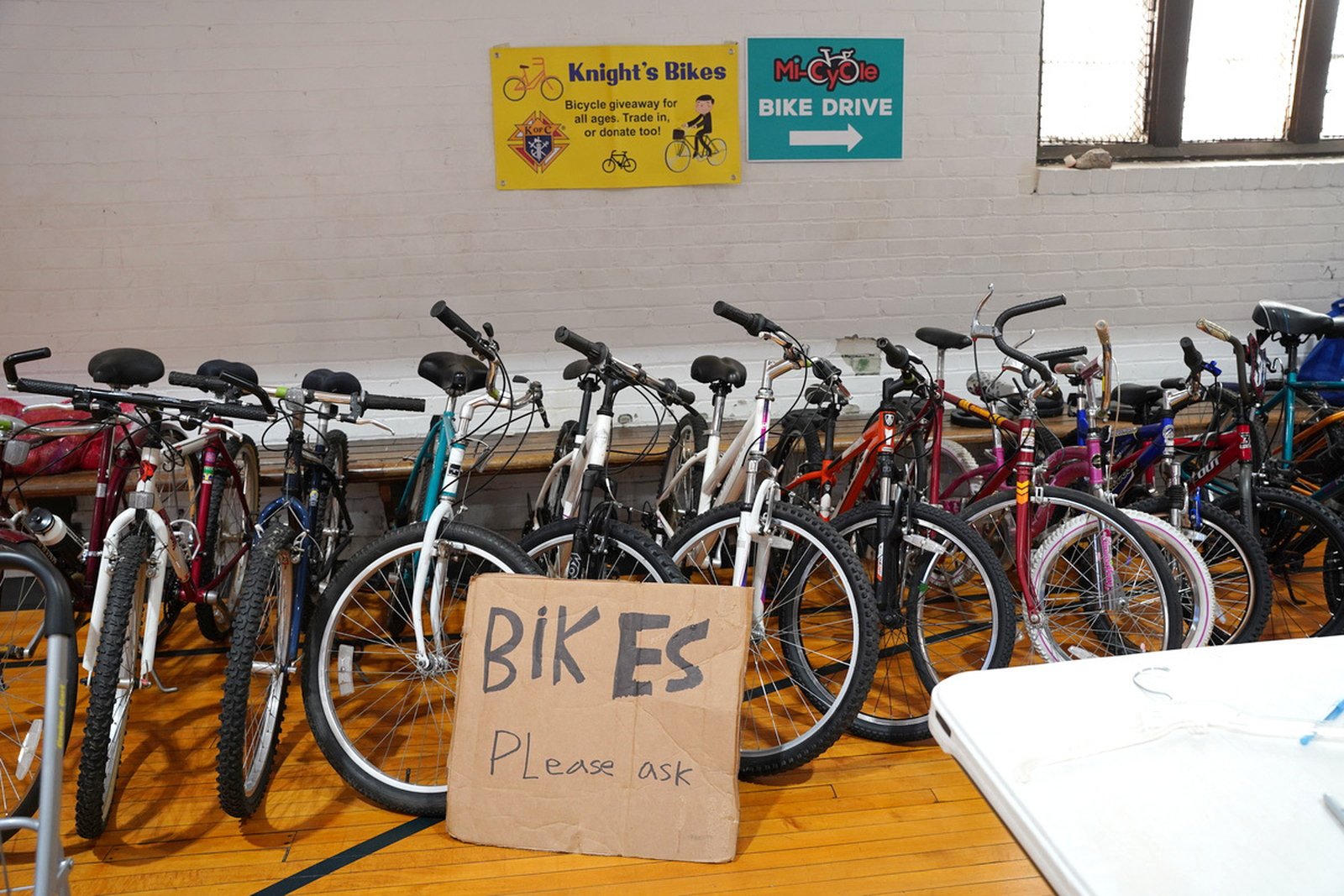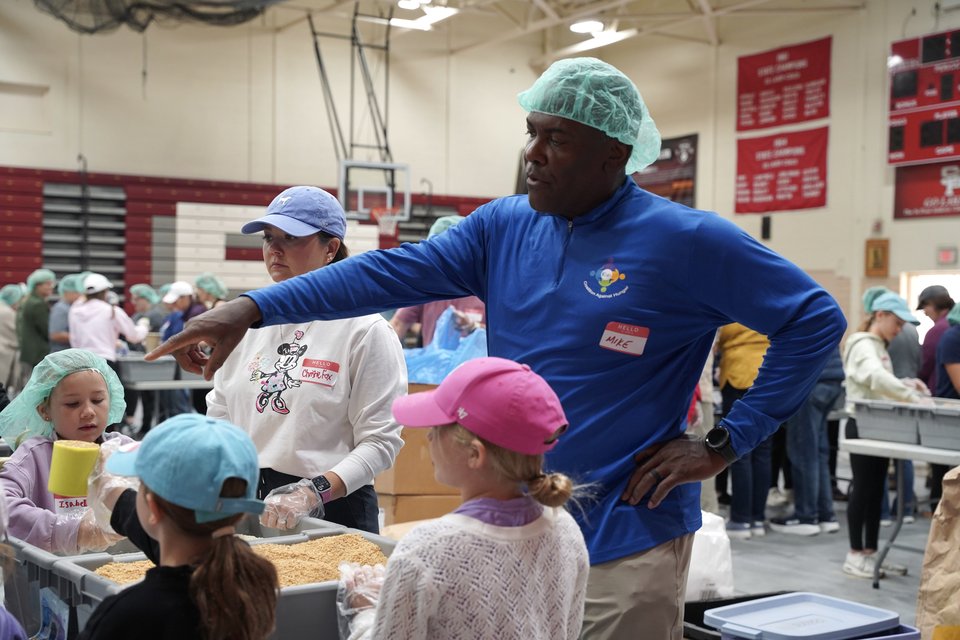St. Vincent de Paul’s Matchan Nutrition Center has distributed 79 bikes to those lacking access to reliable transportation
PONTIAC — A bike might not seem like much to most people, but for those without a car or reliable transportation, access to wheels is access to the world.
At Matchan Nutrition Center in Pontiac, located at All Saints Episcopal Church, people can come twice a week for a hot meal, their pick of essential groceries and even some clothing items.
But this summer, Matchan, a special project of the Society of St. Vincent de Paul at St. Benedict Parish in Waterford and St. Damien of Molokai Parish in Pontiac, brought that access to the world to its guests.
And all they needed were some donated bicycles.
Jack Lintol serves on the board of directors at Matchan and has been in charge of its bike ministry, providing bikes to low-income people to get around town or exercise.
Matchan gave away its first bike on Aug. 6, 2024, and it has been life-changing for its clients, who often struggle to get around town because they don’t have a car, and access to public transportation in the area is limited.
It’s a simple program, but it changes lives, Lintol said.

“I can show you pictures, and you see the big smiles on peoples’ faces,” Lintol told Detroit Catholic. “I talk to people afterward, asking about the bike, and they always say they’re doing wonderful, getting them back and forth, not having to walk to work or take the bus to work. It’s had a dynamic impact.”
Matchan has been around for 40 years, serving meals, distributing food, offering clothing items for free and even working with Goodwill to provide job experiences for people.
Lintol had a bike he didn’t need anymore, and he thought about his friends at Matchan, who always seemed to struggle to get around town.
“I didn’t want to throw away the bike; it’s a decent bike, but it needed some work,” Lintol said. “Then I heard there are some places where you can donate a bike, refurbish it, and get it into the hands of somebody who needs it. I ended up finding Mi-Cycle, which is part of SAY Detroit, Mitch Albom’s program. I looked at their website, drove down and talked to them about our friends who come to Matchan and their needs.”
That conversation began a partnership in which Lintol would take donated bikes from homes, parishes and other groups, to Mi-Cycle and Knights' Bikes, from Knights of Columbus Council 5436 at Our Lady of the Lakes Parish in Waterford.
The partnership has evolved to the point where Mi-Cycle and Knights Bikes have given Matchan far more bikes than Lintol has collected in the community, giving each bike a once-over to ensure the bikes are safe to ride, free of charge.
“Any of the bikes we’ve gotten donated, we take them down to make sure the bike has been gone over, that it’s safe, has everything it needs and isn’t going to break down right away,” Lintol said. “Every bike we have given out has been refurbished.”

Mi-Cycle does the restoration work for free, and then Lintol brings the bikes up to Matchan for distribution.
The process of getting a bike at Matchan is simple: Lintol doesn’t ask for income, address verification, or even proof of need, following the Matchan mantra of serving all who walk through its doors.
“We do ask simple questions, like, ‘What do you need the bike for?’ See if it is for transportation back and forth to work or if they have a car,” Lintol said. “If they do have a car, we tell them we are focused first on those who need it for transportation. We ask if they are going to sell the bike. Just to see what they intend to do with the bike.”
Lintol records every bike he gives away, including taking a picture of the guest with the bike. It’s a way to display how much a bike means to each guest and a subtle way of helping Lintol remember who he’s given a bike to, prioritizing those asking for it for the first time.
Lintol has given out 79 bikes to date, with 56 people on the waiting list. He started out just giving bikes to adults, but lately, guests have been asking for children’s bikes to give as gifts to their kids.
Lintol greets every guest by name when they come for their bike, saying a smile and warm reception are just as important as the bike itself. It’s more than just giving a person a bike; it validates their need to get around and be mobile.
And it assures each guest that someone is looking out for them. Someone who sees them.

“For me, I’d say the blessing I see in all of this is when I’m working here, you don’t necessarily see their head pop up when you say, 'Good morning,' or 'How are you doing?' or even, 'What’s your name?' because you don’t want to invade people’s spaces, especially if you don’t know what they’ve been through,” Lintol said. “So when they sign in, asking for a bike, it gives me access to their name, so I can say, ‘Hey, good morning, Selena, how are you doing?’ It gives me a more personable relationship. It allows me to hopefully shed some light into their day.”
The Matchan Center is open on Tuesdays and Thursdays from 10:30 a.m. to 2:30 p.m. When guests line up outside, many come on their bicycles, locking up the bikes to fences with locks the ministry provides.
Lintol greets guests before doors open, asking about their bikes and their impact on their lives.
“A bike gives them a sense of freedom. There is a value to that bike, not only in monetary value, but in how they can use it,” Lintol said. “It gives them a sense of dignity, a sense of freedom, a sense of independence. I see it in their faces. Not just when we give them the bike, but over time, what that bike means to them.”
Copy Permalink
Christian service












